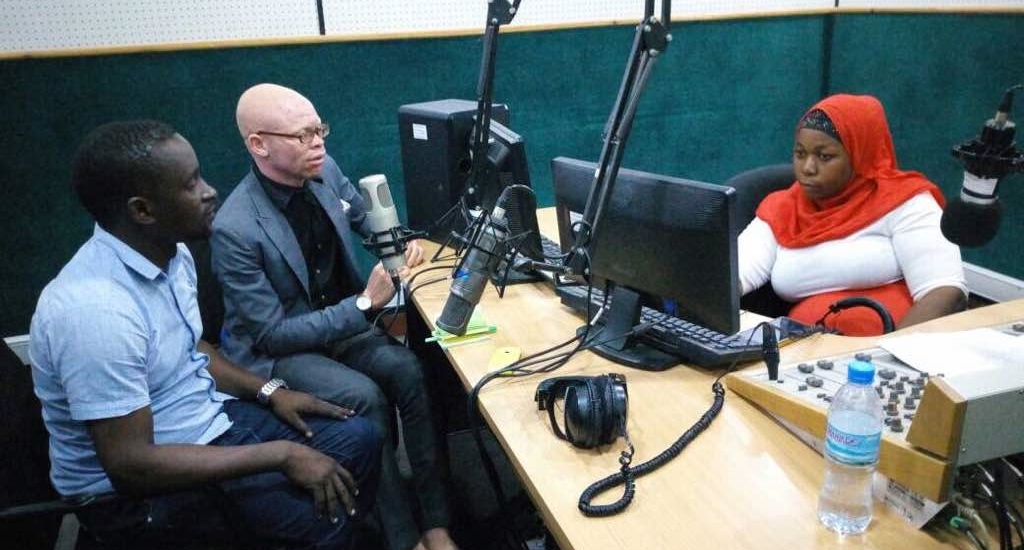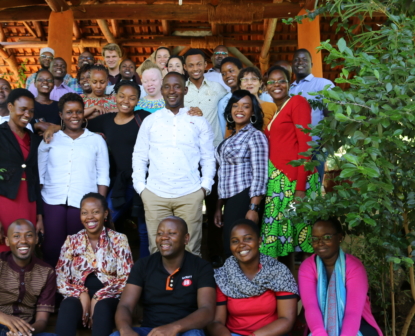Project
Pupils with Disabilities Capitation
-
Amount Funded
86,256 EUROProject Duration
01 Aug 2017 - 31 Jul 2018 -
-
Lead organisation
Partners
Tanzanian Albino Society Morogoro Chapter
-
This project is implemented jointly by The Centre for Environmental Law and Governance (CELG) and Tanzania Albino Society (TAS).
The Centre for Environmental Law and Governance (CELG) is a non-governmental organisation working to promote a well-governed society where rights are respected and protected. The organisation was conceived in January 2009 by four eminent scholars and practitioners in the field of law, governance, environmental justice and community development. CELG was officially registered in September 2009 and is on the fore front in the fields of capacity enhancement, rights advocacy and policy engagement.
The Tanzania Albinism Society (TAS) is a national non-profit organisation established in 1978 by albinos. TAS is helping to protect and empower people with Albinism in Tanzania and serves over 12,000 registered members. For the purposes of this grant CELG has formed consortium with TAS Morogoro Chapter.
-
Organisation
This project is implemented jointly by The Centre for Environmental Law and Governance (CELG) and Tanzania Albino Society (TAS).
The Centre for Environmental Law and Governance (CELG) is a non-governmental organisation working to promote a well-governed society where rights are respected and protected. The organisation was conceived in January 2009 by four eminent scholars and practitioners in the field of law, governance, environmental justice and community development. CELG was officially registered in September 2009 and is on the fore front in the fields of capacity enhancement, rights advocacy and policy engagement.
The Tanzania Albinism Society (TAS) is a national non-profit organisation established in 1978 by albinos. TAS is helping to protect and empower people with Albinism in Tanzania and serves over 12,000 registered members. For the purposes of this grant CELG has formed consortium with TAS Morogoro Chapter.
-
Project
When the government re-introduced free primary education in 2002 with the Primary Education Development Programme (PEDP), it came with a particularly important innovation: the capitation grant. Primary aims of the grant were to replace revenue lost to schools because of the abolition of fees and to improve the quality of education by making real resources available at the school level. In particular, the capitation grant was meant to finance the purchase of textbooks and other teaching and learning materials, as well as to fund repairs, administration materials, and examination expenses. Children with disabilities receive a higher capitation grant than non-disabled children.
The Voice-funded project aims to ensure that primary school pupils with disabilities are fully engaged in planning how their capitation grants should be used so that their educational needs can be met. Secondly it seeks to increase awareness about the capitation grants in order to enhance accountability and promote wise use of the government funds to improve education for people living with disabilities in the country. The overall objective of this project is to make sure PWDs literacy level is increased. This can be promoted through creating supportive learning/school environments for pupils with a disability which can be done by making sure that capitation grants are effectively used to provide a friendly schooling environment.
-
-
When the government re-introduced free primary education in 2002 with the Primary Education Development Programme (PEDP), it came with a particularly important innovation: the capitation grant. Primary aims of the grant were to replace revenue lost to schools because of the abolition of fees and to improve the quality of education by making real resources available at the school level. In particular, the capitation grant was meant to finance the purchase of textbooks and other teaching and learning materials, as well as to fund repairs, administration materials, and examination expenses. Children with disabilities receive a higher capitation grant than non-disabled children.
The Voice-funded project aims to ensure that primary school pupils with disabilities are fully engaged in planning how their capitation grants should be used so that their educational needs can be met. Secondly it seeks to increase awareness about the capitation grants in order to enhance accountability and promote wise use of the government funds to improve education for people living with disabilities in the country. The overall objective of this project is to make sure PWDs literacy level is increased. This can be promoted through creating supportive learning/school environments for pupils with a disability which can be done by making sure that capitation grants are effectively used to provide a friendly schooling environment.
-
Throughout the project, in this one year, there have been significant changes particularly among parents/guardian of CWDs, local leaders at the ward and village levels as well as district officers responsible for social and educational welfare and development.
These changes have led to the government adjusting the resource allocation, depending on the needs of PWDs and which can now be seen in their explicit understanding of what capitation grants are and their purpose – which is to address the needs of schoolchildren including CWDs; their willingness to pursue transparency concerning the management of capitation grants; their increasing levels of understanding the vitality of ensuring CWDs benefit from quality education like other children; their appreciation for opening up space for the rights of CWDs to be exercised and enjoyed; their preparedness to help CWDs understand their responsibilities to people around them and equally important their readiness to engage authorities towards improving the environment for inclusive education.
Sixty (60) individuals including social welfare and social development officers, education officers, ward and village executives, teachers and locally-influential persons were trained on capitation grants, facilitation skills, the rights, needs and responsibilities of PWDs, the roles of community-based trainers and parents/guardians.
A total of 61 children with disabilities (23 in Morogoro Municipality – 11 male and 12 female; 24 in Kilosa – 9 male and 15 female; and 14 in Mvomero – 8 male and 6 female) who haven’t been enrolled in school have been identified and their cases documented and linked to the welfare and social development officers for support. - News




